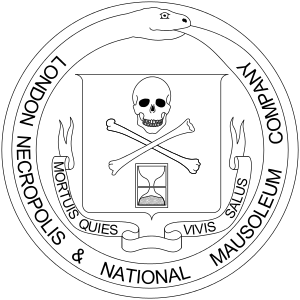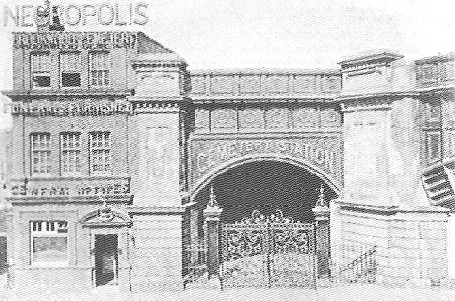

© John Clarke 2014-
John Clarke
Historian of Brookwood Cemetery

Comments on Wikipedia
Wikipedia’s Editorial Policies
Everyone uses Wiki. It was designed as on online encyclopaedia covering everything and anything. As such it’s a very useful reference tool, assuming you can trust what is published there. I’ve no objection to this at all.
But I’d like to draw attention to some of my experiences dealing with Wiki’s editors, beyond whom you have no further recourse if you happen to disagree with the Wiki policies they are enforcing.
Wiki is now encouraging its “authors” to compile “special articles” which in some cases plagiarise the original author’s own research. This is a subtle and possibly subversive change of policy from the original aim of Wiki, which was to compile short encyclopaedic entries. The writing of “special articles” may be regarded as a form of vanity publishing, and is fully supported by Wiki editors. In some cases this “re-
It doesn’t end there. In some cases this “re-
Queries or objections to this policy are such that the Wiki editors’ decision is final. They invariably follow US copyright (or other) laws which tend to be more generous than (say) UK law, and Wiki’s own editorial guidelines (which, of course, the Wiki editors compile).
I realise that Wiki editors are volunteers. But we don’t know how qualified they are (or aren’t) to deal with what may be complex copyright issues, or other genuine concerns; yet they have the final say.
Is this fair to the original author?
And another fact. Wiki is now using conventional publishers to reproduce the content of Wiki “special articles” for sale. Such publishers include Hephaestus Books and Books LLC. A typical “blurb” reads as follows:
“Please note that the content of this book primarily consists of articles available from wikipedia or other free sources online [ie the content can be found for free on Wikipedia]. Hephaestus Books represents a new publishing paradigm, allowing disparate content sources to be curated into cohesive, relevant, and informative books. To date, this content has been curated from wikipedia articles and images under Creative Commons licensing, although as Hephaestus Books continues to increase in scope and dimension, more licensed and public domain content is being added. We believe books such as this represent a new and exciting lexicon in the sharing of human knowledge. This particular book is a collaboration focused on …”
It is unclear if any editorial intervention takes place in compiling and collating the Wiki content. I’d also comment that the typical price for these vanity publications is in excess of £15.
And you may be sure these publications will not draw the reader’s attention to comments about the content of the publication such as you can read here.
Let me guide you through my own case study, regarding the Wiki entries on the London Necropolis railway station (itself a questionable title for the entry) and on the London Necropolis Company.
I also append two analyses of the Necropolis Company article by my friend and former colleague, Reinhard Wentz, who also has an interest in this aspect of Wiki. (Reinhard is an experienced Wiki contributor, and therefore has more familiarity with Wiki policies than I do.)
Both Wiki entries rely heavily on my books The Brookwood Necropolis Railway and London’s Necropolis.
In Reinhard’s first analysis, which compares the text of the Wiki article on the Necropolis Company against my original text, Reinhard concludes “that the sections paraphrased from [John Clarke’s] books constitute well over two thirds of the Wiki article”.
Whilst in Reinhard’s second analysis, which comparies changes of meaning between the Wiki text and my original text) Reinhard concludes that “the paraphrased versions sometimes do not reflect what is actually said in [John Clarke’s] original, [and] sometimes falsify it”; and that “some alleged quotes from p.31 cannot easily link to the actual [John Clarke] text”.
Is this fair to the original author?
Moreover, given the existence of alleged quotes, is this fair to the interested Wiki-
Whilst here are a couple of pictorial examples:
 This is the Great Seal of the London Necropolis & National Mausoleum Company. I drew it for the second edition of my book on The Brookwood Necropolis Railway, which appeared in 1988.
This is the Great Seal of the London Necropolis & National Mausoleum Company. I drew it for the second edition of my book on The Brookwood Necropolis Railway, which appeared in 1988.
It is now part of Wiki, without my permission (as the artist), and is now apparently beyond my copyright since Wiki now claims its own copyright.
Wiki’s response to me was “this image is in the public domain because it depicts a corporate Great Seal which, under US copyright law, all corporate seals are in the public domain”.
What about UK copyright on Great Seals?
 This is the entrance to the first Necropolis Station in London. It is a scanned copy from the 4th edition my book The Brookwood Necropolis Railway.
This is the entrance to the first Necropolis Station in London. It is a scanned copy from the 4th edition my book The Brookwood Necropolis Railway.
Wiki appears to condone unauthorised copying of images from books and articles when Wiki considers it can claim the copyright. I suppose that as I have credited the image to my own collection, Wiki considers this of no importance.
The original image comes from an original brochure published by the London Necropolis Company. I happen to own a copy of it. If anyone owns the copyright of this image it is the successors to the London Necropolis Company, ie Brookwood Park Ltd, proprietors of Brookwood Cemetery, and not Wiki.
Once again Wiki is claiming the copyright to this image without making contact with appropriate persons.
Is this right? Is this fair?
You can read Reinhard Wentz’s first analysis of Wiki here.